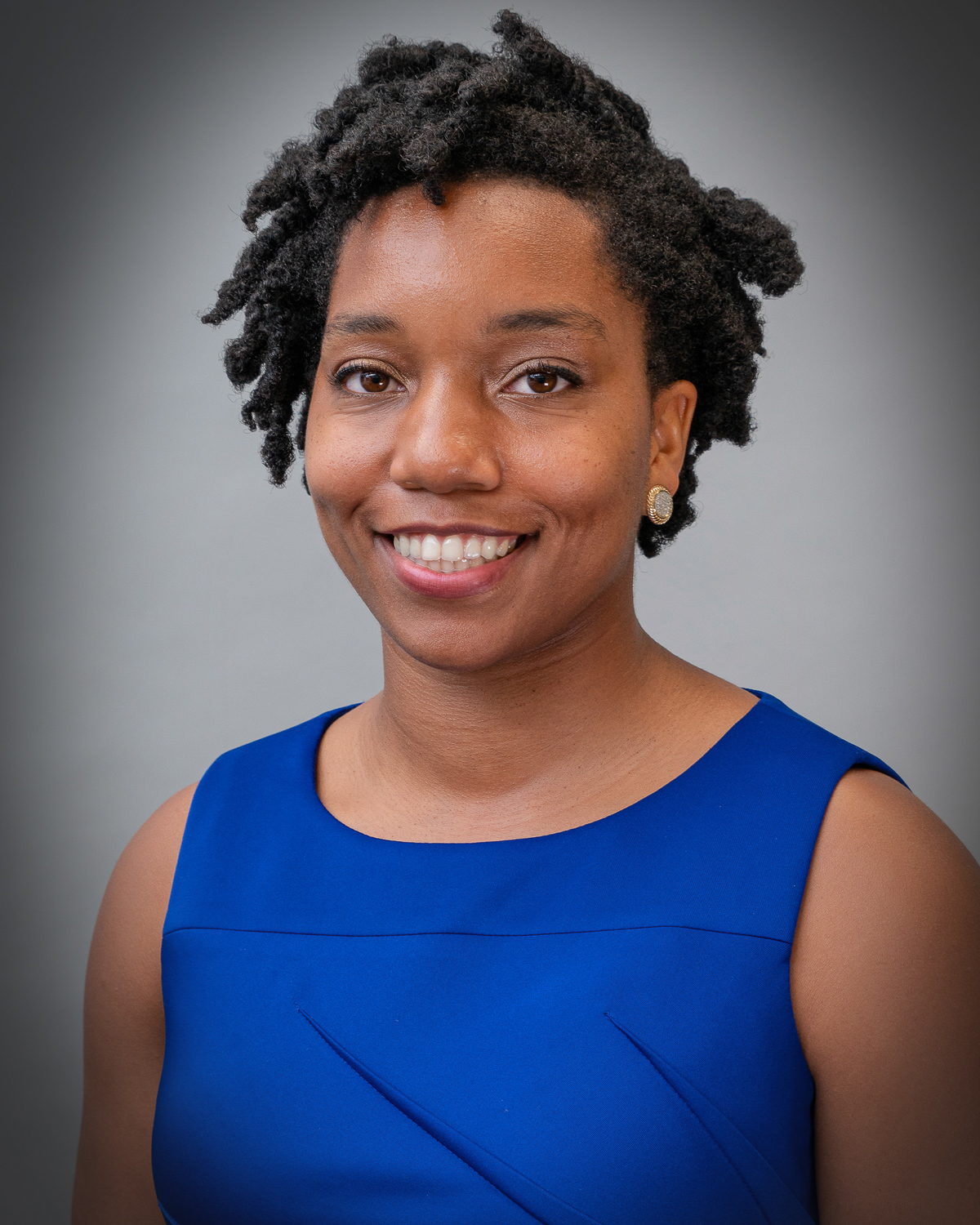Destenie Nock, ‘engineer for social good,’ joins EPP faculty
- Communications Manager, College of Engineering
Destenie Nock has joined the departments of Engineering & Public Policy (EPP) and Civil & Environmental Engineering (CEE) this fall. She will begin as a Presidential Postdoctoral Fellow in EPP with an adjunct-faculty appointment to CEE, before starting as a tenure-track assistant professor in both EPP and CEE in the 2020 academic year.
Nock comes to CMU from UMass Amherst, having earned her Ph.D. there in 2019 in Industrial Engineering and Operations Research. At UMass, her research focused broadly on energy systems modelling, where she applied optimization and decision analysis to evaluate the reliability and sustainability of electricity grids in New England and Liberia.
“My work has been all about applying high-level mathematical modeling to tackle real-world issues in energy systems planning and equity.”
She has applied these mathematical modeling tools to study power generation in many different contexts. During her Ph.D., she assessed the sustainability of different future scenarios for electricity generation in the New England region. Nock built models that analyzed how changed in the power plants used to supply energy would impact the job creation, environmental health and economic viability of various communities. Using these techniques, she was able to identify the trade-offs between different future electricity scenarios in terms of their sustainability for the region.
Going forward with this research at CMU, Nock will continue studying U.S. electricity sector. “I want to help make power systems in the U.S more sustainable, and more equitable.” Working towards that, her initial research at CMU may focus on electricity planning around urban centers in the U.S. and better incorporating the negative impacts of energy generation, such as air pollution impacts on low income communities, into energy planning.
Nock applied a similar systems approach to studying electricity expansion in sub-Saharan Africa during her graduate studies, work that she will continue to pursue as she starts at CMU. “My goal,” Nock says, “is to help increase the electricity access rates in Africa, but not just by looking at the supply-side, also looking at affordability and reliability.” She plans to begin this research by developing an electricity planning tool, which incorporates stakeholder preferences for equality and makes recommendations for national electrification planning.
While her published work on energy-planning spans continents, certain common threads are present throughout. One of those threads is the use of mathematical modeling and optimization to study energy grids, and she sees CMU as fertile ground for applying those tools to new and challenging network problems.
“I would like to expand some of my research (beyond energy systems) to think about road and transportation networks as well. There are so many opportunities to look at the equity and policy questions around links between energy, water and transportation infrastructure.” She said that EPP and CEE faculty with interest and expertise in those areas was a big draw of the College of Engineering. “When I was meeting with faculty during my interview, they were already talking with me about potential collaborations. The feeling of comradery and collaboration was something that really attracted me to CMU.”
Another common thread across Nock’s work is integrating a humanistic lens into her research, which she refers to as ‘engineering for social good.’ She hopes to eventually teach courses on the subject in the College of Engineering, encouraging budding engineers to ask questions like, “How do we apply optimization models to things other than cost?” and “what are some of the unintended consequences of changing the power system infrastructure?”
Nock joins CMU as one of the first female African-American engineering faculty in the history of the college, a fact that she is both proud of and hopes is part of a broader, continuing trend within academic engineering institutions.
“I want to help to diversify engineering,” she said. “It’s important that people understand that engineers come in all shapes and sizes. Diversity of thought and backgrounds are two of the most valuable tools for solving complex engineering problems.”
